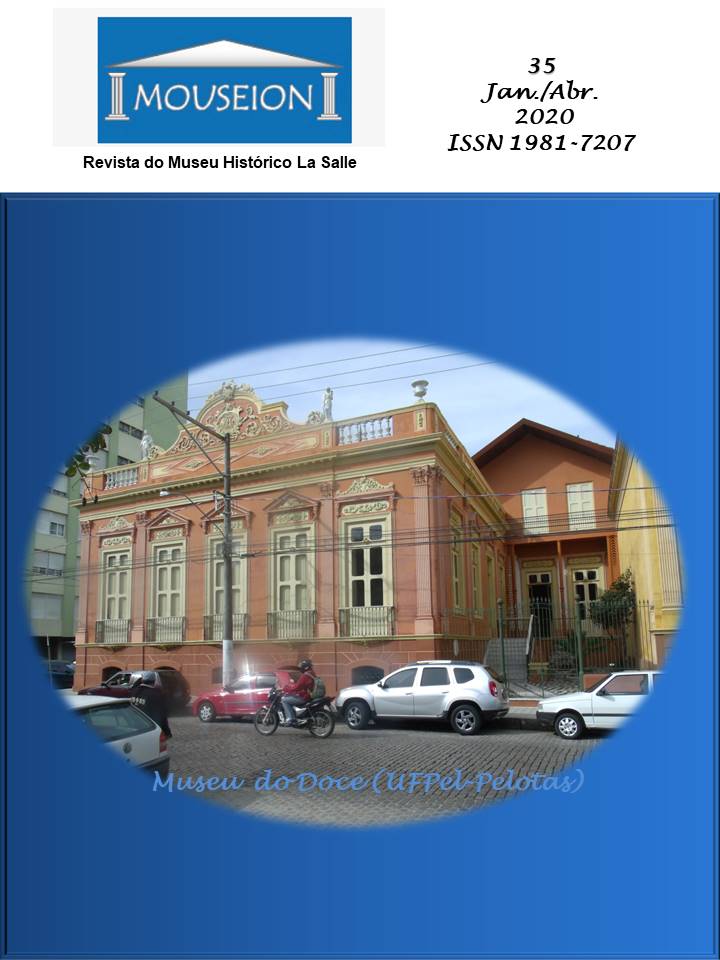The invention of memory: the dispute for the legacy of communism in Brazil between the PCB and PCdoB
DOI:
https://doi.org/10.18316/mouseion.v0i35.6190Keywords:
PCdoB, PCB, Memory, Political LegacyAbstract
When working with communist parties in Brazil, there is a great question as to which would be the true national Marxist-Leninist party, since the two parties in activity, respectively the PCB and the PCdoB, claim to be the legitimate heir of the former association founded in 1922. This is endorsed in party documents, as well as repeatedly declared by the speech of the former militants, who insist on pronouncing a final verdict activated by the memory of the years of struggle. Thus, from this dispute for the legacy, we will seek, as an objective of this article, to discuss the collective memory and the official memory in the party field, especially in the locus of politics, as well as to examine how these memories are activated as political assets in the present time. For methodological purposes, this is a qualitative work, aimed at historical reconstitution, by means of the most significant bibliographical references and that answer the proposed questions. As a result of the research, we verified that the official party memory is quite selective and cut out, according to the electoral political interests, precisely in order to remain active in the political scenario and, also, we verified that this political memory is kept as an object of latent conflict unadjusted and remaining activated in the course of time.
Downloads
Published
Issue
Section
License
Authors must submit their manuscripts to be published in this journal agree with the following terms:
Authors maintain the copy rights and concede to the journal the right of first publication, with the paper simultaneously licensed under the License Creative Commons attribution that permits the sharing of the paper with recognition of authorship and initial publication in this journal.
Since the articles are presented in this journal of public access, they are of free use, with their own attributions for educational and non-commercial purposes.


